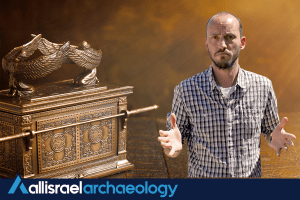Lapid travels to Europe hoping to reset European-Israeli relations
New foreign minister's approach is a shift in focus to improving relations with Western Europe

After years of strained European-Israeli diplomatic relations, the Jewish state’s top diplomat is hoping to improve ties between Israel and the European Union.
As part of this effort, Israeli Foreign Minister Yair Lapid met with the European Union’s High Commissioner for Foreign Affairs Josep Borrell in Brussels on Sunday who said Lapid’s visit was “an opportunity for a fresh start, for restarting the relationship with Israel from the point of view of our bilateral relations, but also about the situation in the Middle East.”
For its part, the European Union – which consists of 27 member states with a total population of approximately 450 million people – also expressed willingness to improve its ties with Jerusalem. On the agenda is restoring the important bilateral EU-Israel Association Forum for the first time since 2012.
The question remains: Can European-Israeli relations be reset and will the rift that has grown over the years between the two sides be healed?
Under former Prime Minister Benjamin Netanyahu, Israel aligned itself closely with Central European countries such as Austria, the Czech Republic and Hungary. Lapid’s approach appears to be a shift in focus to improving relations with Western Europe as well.
It is no secret that Netanyahu had strained ties with much of the EU leadership. However, friction between the EU and Jerusalem did not begin with Netanyahu. Profound policy differences exist between the EU and Israel on key Middle East issues such as the Palestinian Authority and Iran.
In his meeting with Borrell, Lapid stressed “the importance of ties between Israel and the European Union, especially on the economic front,” he later tweeted.
The Israeli foreign minister also thanked EU’s top foreign policy chief for the invitation to address the Foreign Affairs Council.
FM Lapid met with the #EU's High Rep for Foreign Affairs & Security Policy @JosepBorrellF.
— Israel Foreign Ministry (@IsraelMFA) July 12, 2021
They discussed the importance of 🇮🇱🇪🇺 relations, especially in the economic sphere. Lapid thanked Borrell for inviting him as the main speaker in today's Foreign Affairs Council event. pic.twitter.com/IC8URk8iuO
Despite frequent disagreements on Middle East policy and Jerusalem’s expanding trade with China and other emerging markets, the EU remains the Jewish state’s biggest trade partner, accounting for 29.3% of all Israel’s trade in goods in 2020. Last year, the total trade in goods between Israel and the EU amounted to 31 billion euros or approximately $36.5 billion.
Most EU member states appear to support the resumption of the annual bilateral Association Forum with Israel for the first time since 2012. In 1995, Israel signed an Association Agreement with the EU, which was ratified in 2000.
In 2013, Jerusalem cancelled the council in protest after the EU decided to boycott any Israeli business with links to Jewish settlements beyond the contested green line in the West Bank. In practice, the EU policy excluded many of Israel’s leading banks and other companies that have branches beyond the green line.
Borrell welcomed Lapid’s visit to the European Union but stressed that “bilateral relations are also conditioned to many issues in which we have differences,” and committed to working together toward resuming Association Council meetings if the conditions are met.”
In other words, the EU appears to link upgraded commercial ties with Israel to a shift in Jerusalem’s policy towards the Palestinian Authority and Jewish settlements.
But Lapid asked for “a new start,” and went on to reassure EU ministers that the new Israeli government is committed to working through challenges.
“The key message is that different people, with different opinions, can have dialogue and work together without resorting to a zero-sum game,” he said. “It is new, but it is also a return to the core roots of liberal democracies: making decisions that one can disagree with, without hating those with whom we disagree.”
He also told the ministers that he supports a two-state solution, but that “unfortunately, there is no current plan for this.”
“However, there is one thing we all need to remember. If there is eventually a Palestinian state, it must be a peace-loving democracy. We cannot be asked to take part in the building of another threat to our lives,” he said.
While the centrist Lapid supports a two-state solution, the hawkish Israeli Prime Minister Naftali Bennett has so far opposed the establishment of a Palestinian state on ideological and security grounds.
Since the current Israeli government is fragile due to its extreme political diversity, it is unlikely to pursue any dramatic controversial policies relating to the West Bank. While completely resetting EU-Israeli ties is unrealistic, the Bennett government’s internal constraints concerning West Bank policies open the door to a mutually beneficial commercial renaissance between the European Union and the Jewish state.

The All Israel News Staff is a team of journalists in Israel.













